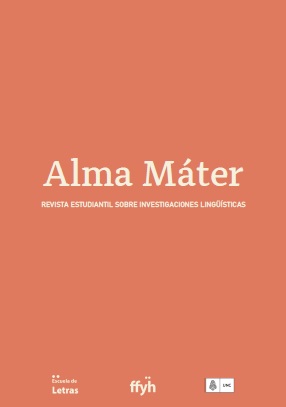Hablantes que construyen: los diccionarios desde una perspectiva sociolingüística
Keywords:
Dictionaries, Speakers, Spanish Language, SociolinguisticsAbstract
The current article searches to characterize and analyze, from a sociolinguistic perspective, two Spanish dictionaries constructed by its speakers: Diccionario Latinoamericano de la Lengua Española (Latin-American Dictionary of the Spanish Language) and Diccionario Sin Coronita (Dictionary Sans-Crown). Our objective is to compare these two dictionaried (which were developed as academic projects within university institutions) since they constitute estranged alternatives to those dictionaries made by specialized groups. Besides, these projects take the speakers of the concerned language into account, as well as the usage they make of it, acknowledging their prominence when it comes to define and construct the world they inhabit. Finally yet importantly, this paper aims to make known these kind of initiatives, nationally promoted.
It is important to highlight that both of these dictionaries are projects which opt for the emergence of new ways to understand and shape dictionaries. In that way, they also propose the continuous deconstruction of those dictionaries historically legitimated and installed in and by the society, as, for example, the Diccionario de la Real Academia Española (Dictionary of the Royal Spanish Academy), unquestioned reference point for the generality of Spanish Language.
Downloads
Downloads
Published
How to Cite
Issue
Section
License
Copyright (c) 2021 María Belén Barquín, Rocío Martínez Bernard, Virginia Nicola

This work is licensed under a Creative Commons Attribution-NonCommercial 4.0 International License.
Los textos están protegidos por una Licencia Creative Commons Atribución/Reconocimiento-NoComercial 4.0 Licencia Pública Internacional — CC BY-NC 4.0. Dicha licencia autoriza a a terceros utilizar lo publicado, siempre que se otorgue el adecuado reconocimiento; se mencione la autoría del trabajo y la publicación en la revista Alma Máter y no se haga uso del material con propósitos comerciales.






